Polymer-Processing – Recycling-polypropylene 25-05-2022 - Arhive
Polymer-Processing – Recycling-polypropylene
-Oerlikon Polymer Processing Solutions Division
Interview with Andre Wissenberg
Q – What is the size of global market for textile machinery? What percentage share does Oerlikon have?
A. – When we as Oerlikon talk about the textile machinery market, we focus on the market we can reach with our product, engineering and service portfolio. Here we currently see an achievable market size of around €3.5 billion. This covers our market solution approach ‘From Melt to Yarn, Fibers & Nonwovens’. Our share of this market is above 35 per cent. In individual product lines, such as BCF (Bulked Continuous Filament) carpet yarn systems, we also have market shares of more than 80 per cent worldwide. In the volume-driven spinning sector, we cover greater than 40 per cent.
Q – Within the textiles and technical textile segment, which machinery is sold most? Why?
A.– Since the market launch of our Oerlikon Barmag WINGS Technology for POY in 2007 and FDY in 2012, we have been one of the leading suppliers to all major international polyester spinning mills. Combined with our manual and automatic DTY machines of the eFK and eAFK series, we offer a comprehensive package as a plant solution provider including continuous polycondensation and extrusion. Our range is rounded off by automation and digital solutions. In the segments of industrial yarns and nonwovens, we are concentrating on plant solutions for airbags, seat belts, tire cord, geotextiles, filter nonwovens and their diverse applications. The reason why we are so successful in all our technology solutions is rooted in our company history of over 100 years. As a pioneer of the man-made fibre industry founded in 1922, Oerlikon Barmag was always oriented on the guiding stars of innovation and technology leadership within a global market environment. Our strong entrepreneurial spirit and boundless creativity have shaped us. We are proud of our entire global workforce. Polymer-Processing – Recycling-polypropylene
The creative utilisation of its experience and knowledge potential in close collaboration with high-performance partners, suppliers and services providers is the key to our sustained success. We focus on close cooperation with our customers, offering them market-oriented innovations and services. These are based on interdisciplinary, team-oriented development work and high-quality production procedures. In the future, we will continue to constantly question established processes and break down conventional procedures and ways of thinking, because innovation starts with creativity. Currently too, we actively promote these with our multicultural and open corporate culture.
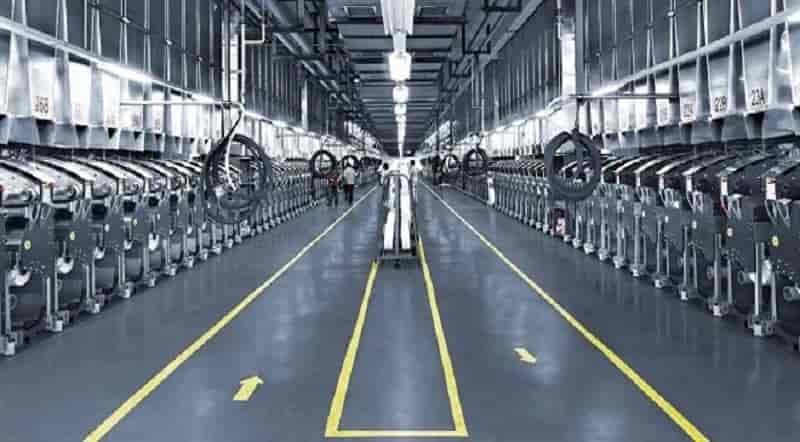
-PP futures in China fell by 1.4% amid a sharp decline in commodity prices
China’s polypropylene (PP) futures fell 1.4% on May 19, ICIS reported, citing data from the Dalyan Mercantile Exchange (DCE).
Thus, pp futures for September 2022, the most actively traded on DCE, on May 19 were at the level of CNY 8,493 (USD1,312) per ton, which is CNY122 per ton below the level of approval of the previous day.
According to DCE, about 2.5 million tons of polypropylene were sold on Thursday with delivery in September 2022. Polymer-Processing – Recycling-polypropylene
Polypropylene futures prices fell due to a drop in coal futures (a decrease of 1.3%), while more spot transactions were concluded than a day earlier.
Earlier it was reported that the Chinese company Ningbo Kingfa Advanced Materials on May 12 resumed production at the propane dehydrogenation plant in Ningbo (Ningbo, Zhejiang Province, China) after carrying out planned preventive measures. Repair work at this installation with a capacity of 600 thousand tons of propylene per year was started on April 21 of this year.
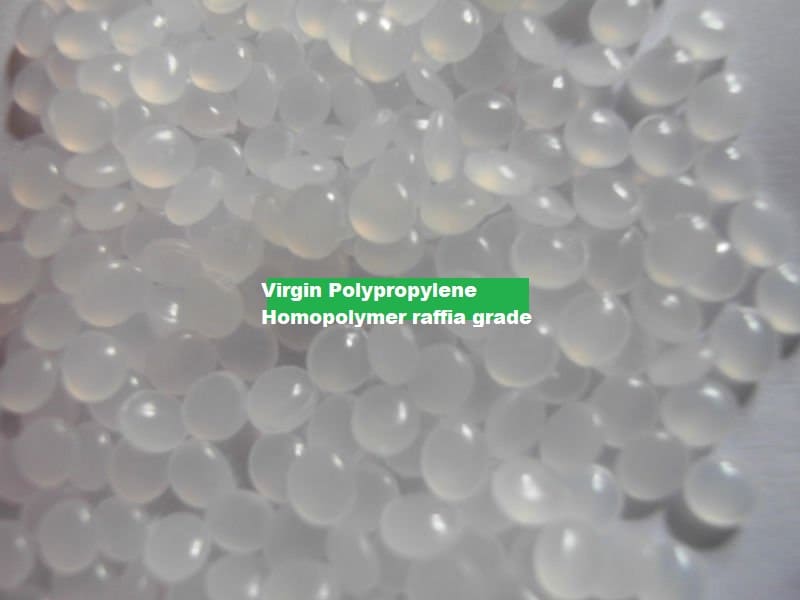
-Kuraray to increase June prices of polyester staple fiber
Kuraray announces its decision to increase the prices of polyester staple fiber, for shipments commencing June 1, 2022, said the company.
In addition to the significant increase in the cost of key raw materials and utilities resulting from a rise in crude oil prices, Kuraray’s earnings continue to experience pressure from soaring logistics and manufacturing costs, the rapid depreciation of the yen, associated with increased costs for facility maintenance and renewal, which are beyond the scope of cost absorption through the Company’s internal efforts.
Under these circumstances, Kuraray has decided to implement the price revisions set out below to improve profitability and to maintain a steady supply.
As per MRC, Kuraray Co., Ltd. (Tokyo, Japan) has announced its decision to divest operations related to UV-based water treatment and ballast water treatment run by Calgon Carbon Corporation, a Group subsidiary based in the United States.
The divested operations will be transferred to De Nora Water Technologies LLC in Italy. Polymer-Processing – Recycling-polypropylene
As MRC informed before, Kuraray America, a subsidiary of the Kuraray Group and one of the leading international companies in the production of specialty chemicals, fibers, resins and elastomers, has resumed operations at its vinyl acetate monomer (VAM) plant in La Porte, Texas, USA. This plant with the capacity of 335,000 mt/year was shut in mid-February because of the unprecedently low temperatures in the region and restarted on 2 April, 2021.
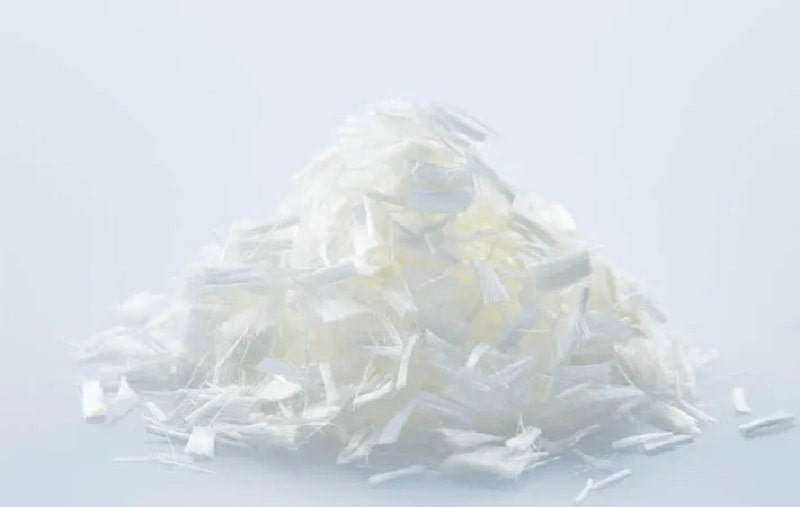
-The Use of Plastic Gears in Industries
In an article recently published in the open-access journal Polymers, researchers discussed the service and wear life of 3D printed polymeric gears.
Background
In recent years, additive manufacturing has surpassed traditional manufacturing methods in popularity. The most significant downside of additive manufacturing is that it takes longer to produce than traditional manufacturing methods and is not ideal for large production. With a little investment, it is feasible to make goods that have been modeled with a three-dimensional (3D) printer.
Because of their lightness, low cost, corrosion resistance, and silent operation, plastic gears are commonly employed in the electrical, culinary, and textile sectors. The strength of plastic gears printed in three-dimensional printers was investigated by researchers. The mechanical properties of gears created using the 3D printing approach have been investigated both theoretically and empirically under various working situations. Polymer-Processing – Recycling-polypropylene
About the Study
In this study, the authors calculated the wear resistance of plastic spur gears made using the fused deposition modeling (FDM) method theoretically. Wear tests were performed in the Forschungsstelle für Zahnrader und Getriebebau (FZG) type test equipment at the same load and rotational speeds to assess the service life of gears. Gears were made from thermoplastic polymer materials such as acrylonitrile butadiene styrene (ABS), polylactic acid (PLA), and polyethylene terephthalate (PETG).
The team determined the wear of plastic gears generated by the FDM process in 3D printers theoretically based on the number of rotations. MATLAB® was used to calculate the equation that was used to describe wear along the line of action.
The researchers evaluated the gears’ service life by repeating the tests with the same load and rotating speeds. PLA, ABS, and PETG polymeric thermoplastic materials were used, which are often utilized in the FDM process. Plastic gears were printed using a BCN 3D Sigma R19 three-dimensional printer. Wear testing was performed with the FZG closed-circuit wear test instrument to observe the wear on the gears.
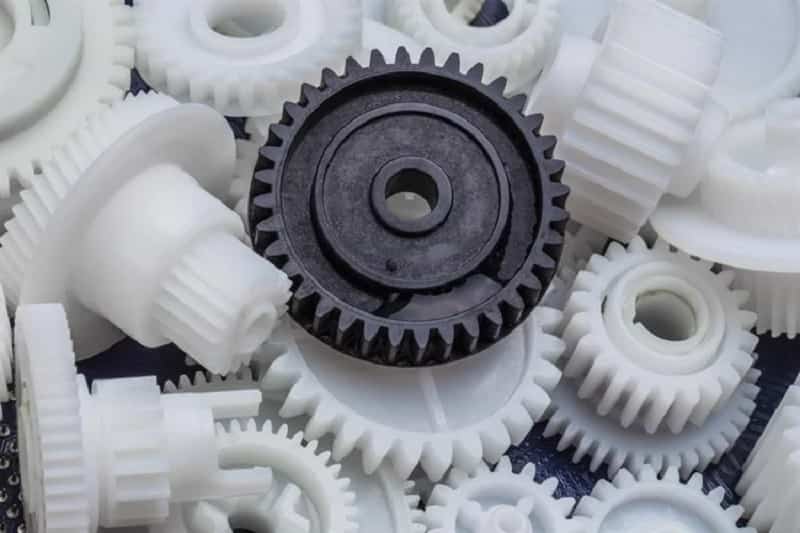
-Sustainable technologies from Andritz at Techtextil 2022
International technology group Andritz will be presenting its latest nonwovens production and textile solutions at Techtextil in Frankfurt, Germany, from June 21 to 24 (hall 12, booth B99).
The broad Andritz product portfolio covers state-of-the-art nonwovens and textile production technologies, such as air-through bonding, airlay, needlepunch, spunlace, spunbond, wetlaid/Wetlace, converting, textile finishing, recycling, and natural fiber processing. For Techtextil, special focus lies on technologies for textile recycling, needlepunch, airlay, wetlaid glass fibres and textile calendering.
With the acquisition of Andritz Laroche SAS, the company has expanded its product portfolio to include airlay and recycling technology as well as bast fibre processing technologies. Polymer-Processing – Recycling-polypropylene
Complete recycling lines for post-consumer and industrial textile waste to produce fibres for re-spinning and/or nonwoven end-uses are one focus of this product range. Customer awareness and regulations are forcing clothing brands to recycle their textile waste in their own products. Recycled fibers can also be used in the nonwovens industry for various applications, for example in the automotive industry, for insulation, mattresses, and furniture felts.
Andritz Laroche offers a complete process range of tearing lines from 50 up to 3,000 kg/h, which can be used for almost all types of pre/post-consumer textile waste. The aim is to preserve the character of the original fibers, for example cotton, by maximizing fiber length, strength and feel.
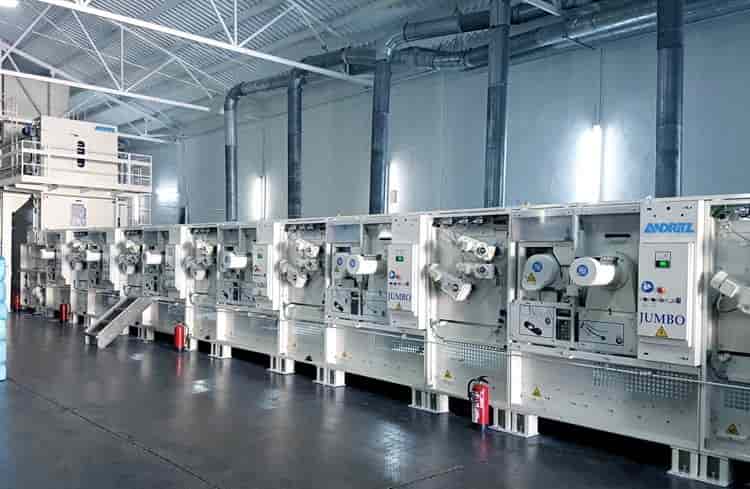
-LCA data on PureCycle PP released
PureCycle Technologies has released its first Environment, Social, and Governance (ESG) Report including third party preliminary Life Cycle Assessment (LCA) data that shows the company’s purification process for recycling polypropylene (PP) waste uses less energy and has lower carbon emissions than new plastic production.
The report also details PureCycle’s efforts to scale and optimise its recycling, harness the latest manufacturing technology systems, and leverage top tier talent to fulfil the company’s mission of transforming plastic waste into a continuously renewable resource.
Based on the design of PureCycle’s Ironton, Ohio facility, carbon emissions are expected to be 35% lower compared to new PP production and to use 79% less energy. Polymer-Processing – Recycling-polypropylene
The plant is using the latest generation of automation technology, employing virtual reality, augmented reality and artificial intelligence to allow the company to complete projects faster, and operate with world-class performance and enhanced safety.
“As a plastic recycling technology company aiming to reduce plastic waste, partnering with leading brands to help them create sustainable consumer products and transforming the industry, it’s essential we also do our part to minimise our environmental impact and conserve resources,” said Mike Otworth, the company’s chairman and CEO. “As we continue to refine our approach, we will look for impactful, innovative ways to reduce carbon emissions and utilise less energy. This is just the beginning.”
PureCycle’s product is designed to provide an alternative to high-cost carbon credit purchasing programmes while helping brands achieve their highest sustainability goals.
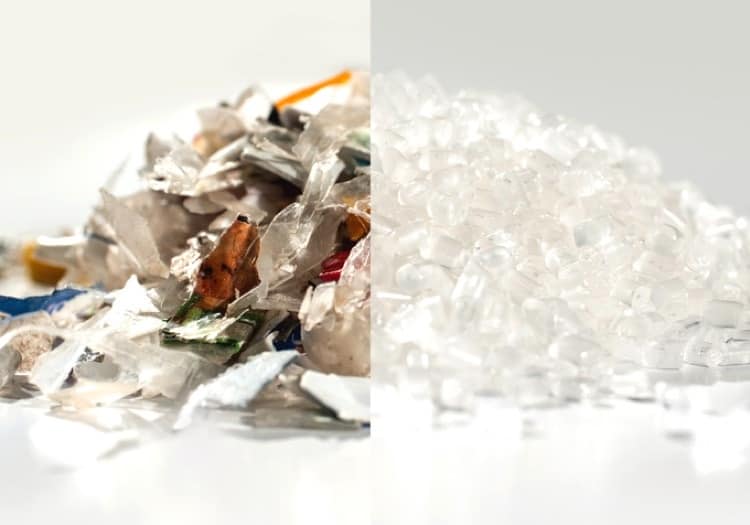
Polymer-Processing – Recycling-polypropylene
